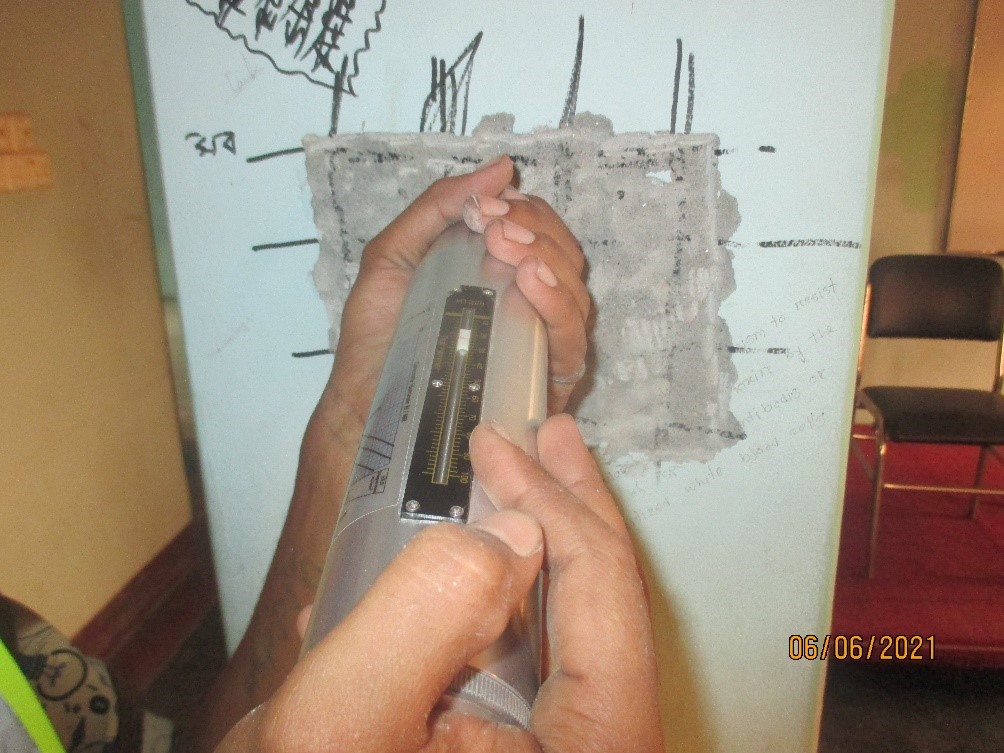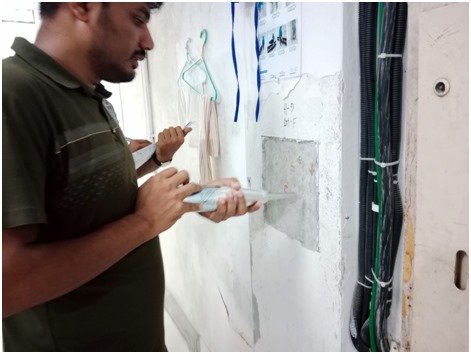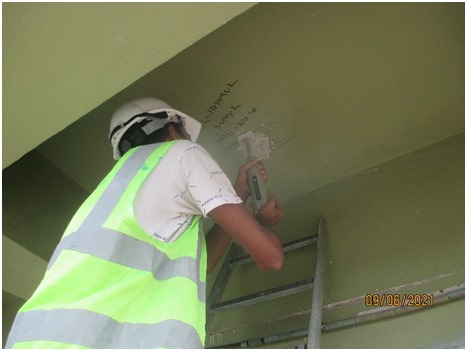Rebound Hammer test in Bangladesh
Concrete hammer test can also be referred to as Swiss hammer, Schmidt hammer, and rebound hammer. The hammers use to assess the quality of hardened concrete. The concrete hammer test provides more value to estimate the in-place strength of concrete. The hammer test is more than just testing the strength of concrete but it’s an evolution of concrete structure. The hammers are easy to use and portable as well. It’s carrying a history of widespread usage. However, the hammer test in Bangladesh is also popular. The test helps to understand the performance of concrete so easily.
What is the Hammer test?
To understand structural stability, the hammer test provides a quick, cost-efficient, and detailed analysis. By assessing the structure broadly, it can be found that an in-depth testing program is needed or not. Besides, it’s a very cost-effective measurement to decide the requirement. Here the hammer needs to be pushed against the concrete’s surface till it trips as well as release the mass of the hammer. The mass tends to strike piston, through its impact the amount of energy of the concrete can be defined. When the mass of the hammer bounces back, the rebound number or R-value becomes recorded using a sliding indicator and shown on a simple linear scale. Then the measurement of surface hardness compared to the test result of the laboratory through Schmidt indicator.

Hammer Test/ Rebound Hammer Test Type of Using Purpose:
- To Check Existing Concrete Strength
- To Check Concrete Hardness
- To Check Concrete Air Void Quality
- To Verify Existing Concrete Strength and Design Strength etc.


When to perform hammer test in Bangladesh?
A Hammer test is necessary to test the hardened concrete and determine the structure’s stability. The integrity of the existing structure must be assessed after decades of exposure to harsh environments, natural calamities, or other stresses. Deficiency in materials may lead to the non-destructive evolution of buildings. Especially the structures which are still under construction for a long time should do the test to check if there’s time left to fix it. The strong unit of hammer test refers to the collection of concrete uniformity as well as the quality of data that provide rapid and efficient collection for both new and ongoing construction. The concrete quality, highlighted areas using lower strength, isolated areas that faced fire damage, and the overall picture will be revealed through this simple test. A Hammer test in Bangladesh is needed to test the integrity of all the structures.
What are the types of hammer tests in Bangladesh?
Two different versions of the hammer tests can be got everywhere in Bangladesh.
Type N: With impacted energy of 1.63ft-lbf (2.207Nm) a wide range of concrete elements and structures can be tested in this type of hammer testing. The thickness of concrete is greater than 4in (100mm) and 1,450 to 10,152psi (10-70mPa) (in-place strength) measured by type N hammer. The limitation of this type of hammer test needs to be noted as well.
Type L: This type of hammer test is also known as the rebound hammer test. Unlike type N it generates lower impact energy of 0.54ft-lbf (0.735Nm). with similar compressed strength ranges it provides repeatable values while testing a 4in (100mm) thick concrete structure.
Conclusion
The advancement of technology has provided more sophisticated hammers. Test hammers aren’t really popular in Bangladesh though it’s very easy to get from manufacturers in Bangladesh, we do hammer tests in Bangladesh. We follow a variety of strategies to ensure the effective assessment of concrete. This test reveals the whole picture of concrete quality, strength, and uniformity.
